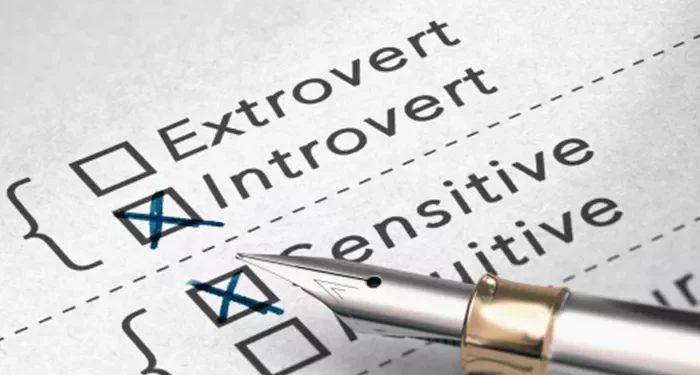A personality type is a classification of different traits and characteristics that define an individual’s behavior, thoughts, and emotions. These types are often derived from psychological theories and assessments designed to categorize human behavior into distinct groups. Understanding your personality type can help you gain self-awareness, improve your relationships, and make informed decisions about your career and personal life.
The Importance of Knowing Your Personality Type
Knowing your personality type can be incredibly beneficial. It can help you understand why you react to certain situations in specific ways, why you prefer certain activities over others, and how you can better communicate with people who have different personality types. This self-awareness can lead to personal growth, improved relationships, and a more fulfilling life.
Popular Personality Typing Systems
There are several well-known personality typing systems used in psychology. Each system offers a different approach to understanding human behavior. Below, we will discuss some of the most popular ones.
The Myers-Briggs Type Indicator (MBTI)
The Myers-Briggs Type Indicator (MBTI) is one of the most widely used personality assessments. It categorizes individuals into 16 different personality types based on four dichotomies:
Extraversion (E) vs. Introversion (I): This dichotomy describes where individuals draw their energy from. Extraverts are energized by social interactions, while introverts recharge by spending time alone.
Sensing (S) vs. Intuition (N): This dichotomy reflects how individuals gather information. Sensors focus on concrete, present realities, while intuitives are more interested in abstract concepts and future possibilities.
Thinking (T) vs. Feeling (F): This dichotomy indicates how individuals make decisions. Thinkers prioritize logic and objectivity, while feelers consider personal values and the impact on others.
Judging (J) vs. Perceiving (P): This dichotomy describes how individuals approach the outside world. Judgers prefer structure and planning, while perceivers are more spontaneous and flexible.
By combining these preferences, the MBTI assigns a four-letter code (e.g., INFJ, ESTP) that represents your personality type.
The Big Five Personality Traits
The Big Five personality traits, also known as the Five Factor Model, is another widely accepted framework in psychology. It identifies five broad dimensions of personality:
Openness to Experience: This trait reflects an individual’s willingness to try new things and embrace novel experiences. People high in openness are often creative and curious, while those low in openness prefer routine and familiarity.
Conscientiousness: This trait refers to an individual’s level of organization, responsibility, and dependability. Highly conscientious people are disciplined and goal-oriented, while those low in conscientiousness may be more spontaneous and less focused on long-term planning.
Extraversion: Similar to the MBTI, extraversion in the Big Five model describes sociability and energy derived from social interactions. Extraverts are outgoing and talkative, while introverts are more reserved and reflective.
Agreeableness: This trait measures an individual’s tendency to be compassionate and cooperative. Highly agreeable people are empathetic and trusting, while those low in agreeableness may be more competitive and skeptical.
Neuroticism: This trait reflects an individual’s emotional stability. People high in neuroticism experience more negative emotions like anxiety and sadness, while those low in neuroticism are more emotionally resilient.
The Big Five model uses a continuum for each trait, allowing for a more nuanced understanding of personality.
The Enneagram
The Enneagram is a personality typing system that categorizes individuals into nine different types, each with its own set of motivations, fears, and desires. The nine types are:
- The Reformer: Principled, purposeful, and self-controlled.
- The Helper: Generous, people-pleasing, and possessive.
- The Achiever: Adaptable, success-oriented, and image-conscious.
- The Individualist: Creative, introspective, and temperamental.
- The Investigator: Perceptive, innovative, and isolated.
- The Loyalist: Committed, security-oriented, and anxious.
- The Enthusiast: Spontaneous, versatile, and scattered.
- The Challenger: Self-confident, decisive, and confrontational.
- The Peacemaker: Easygoing, accommodating, and complacent.
Each type is connected to two other types, known as “wings,” which add additional layers to an individual’s personality. The Enneagram also includes levels of development, indicating how healthy or unhealthy a person is within their type.
The DISC Assessment
The DISC assessment is a tool used to measure four primary personality traits:
- Dominance (D): Individuals high in dominance are assertive, results-oriented, and decisive.
- Influence (I): People with high influence are sociable, enthusiastic, and persuasive.
- Steadiness (S): Those high in steadiness are patient, reliable, and cooperative.
- Conscientiousness (C): Individuals high in conscientiousness are analytical, detail-oriented, and systematic.
The DISC assessment is often used in organizational settings to improve teamwork, communication, and leadership.
How to Determine Your Personality Type
Now that we’ve explored some of the most popular personality typing systems, let’s discuss how you can determine your own personality type.
Take a Personality Test
One of the most straightforward ways to determine your personality type is by taking a personality test. Many of the systems mentioned above have corresponding assessments that you can complete online or with the help of a professional. These tests typically consist of a series of questions designed to gauge your preferences, behaviors, and attitudes.
- MBTI: The official MBTI assessment is available through certified practitioners, but there are also many free versions online.
- Big Five: Several online platforms offer Big Five assessments, such as the IPIP-NEO and the Big Five Inventory.
- Enneagram: There are numerous Enneagram tests available online, including the Riso-Hudson Enneagram Type Indicator (RHETI).
- DISC: The DISC assessment is often administered in professional settings, but there are also online versions available.
Reflect on Your Behavior and Preferences
In addition to taking a test, you can gain insights into your personality type by reflecting on your behavior and preferences. Consider the following questions:
- Do you prefer spending time with others or alone?
- Are you more focused on the present or the future?
- Do you make decisions based on logic or emotions?
- Do you prefer structure or spontaneity?
By answering these questions, you can start to identify patterns in your behavior that align with specific personality types.
Seek Feedback from Others
Sometimes, it can be challenging to see ourselves objectively. Seeking feedback from friends, family, or colleagues can provide valuable insights into your personality. Ask them how they perceive your behavior, preferences, and decision-making processes. Their observations can help you gain a more comprehensive understanding of your personality type.
Read About Different Personality Types
Another way to determine your personality type is by reading about the different types and seeing which one resonates with you the most. Many books, articles, and online resources provide detailed descriptions of each type, including their strengths, weaknesses, and typical behaviors. As you read, take note of which descriptions align with your own experiences and tendencies.
Work with a Professional
If you’re still unsure about your personality type, consider working with a psychologist or counselor who specializes in personality assessments. They can administer formal tests, provide personalized feedback, and help you interpret the results in the context of your life.
The Benefits of Knowing Your Personality Type
Understanding your personality type can have a profound impact on various aspects of your life. Here are some of the key benefits:
Improved Self-Awareness
Knowing your personality type can help you understand your strengths, weaknesses, and motivations. This self-awareness can lead to personal growth and a better understanding of how you interact with the world.
Enhanced Relationships
Understanding your personality type can improve your relationships by helping you recognize and appreciate the differences between yourself and others. It can also provide insights into how to communicate more effectively with people who have different personality types.
Career Guidance
Your personality type can influence your career preferences and success. For example, if you’re an introvert, you may thrive in a quiet, independent work environment, while an extravert may prefer a more social, collaborative setting. Knowing your personality type can help you choose a career that aligns with your natural tendencies and strengths.
Personal Development
Understanding your personality type can guide your personal development efforts. For example, if you’re high in neuroticism, you may want to focus on developing emotional resilience. If you’re low in conscientiousness, you may want to work on improving your organizational skills.
Better Decision-Making
Your personality type can influence your decision-making processes. For example, if you’re a thinker, you may prioritize logic and objectivity, while a feeler may consider personal values and the impact on others. Understanding your decision-making style can help you make more informed and balanced choices.
Conclusion
Determining your personality type is a valuable step toward self-discovery and personal growth. Whether you use the MBTI, the Big Five, the Enneagram, or another system, understanding your personality can provide insights into your behavior, preferences, and interactions with others. By taking a personality test, reflecting on your behavior, seeking feedback, reading about different types, and working with a professional, you can gain a deeper understanding of yourself and how you fit into the world. This knowledge can lead to improved relationships, career satisfaction, and a more fulfilling life. So, take the time to explore your personality type—it’s a journey worth embarking on.
Related topics:
What Personality Types Are Prone to Anxiety?
What Are the 5 Main Personality Types?























